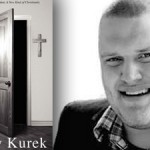“Faith seeks understanding” (St. Anselm, 1033-1109). Mine is no different. I do not wish to adopt a belief system to satisfy those of the same belief system in circular self-affirmation. In an effort to find a suitable structure of thought to understand what I believe, I have come up with this z-theory. I am certain it is nothing new, but as old as the sun. However, it is a new way of thinking for me that has unlocked the shackles of fundamentalism from my mind and liberated my thinking. I now experience a new level of joy and freedom I have not known before. I wish to share it with my readers because I believe it is helpful.
I am certain that this theory is a structure for thinking about reality that is not offensive to anyone of any faith, religion, philosophy, or non-faith, etc., but in fact useful to all people of every persuasion. Being that I find myself a Christian, and a pastor of a church at that (I’ve been reminded of that many times lately!), I find this theory can be constructive to the Christian faith. I do so for these reasons:
- It is Trinitarian in form: God, God Incarnate, God the Spirit.
- It acknowledges the transcendence of the Absolute, the Almighty, the All Above All… Father, God, and Lord.
- It is Christocentric. God Incarnate, dethroned, condescended from non-Being to being. The only way we are connected to the Transcendent is in the son of man.
- It embraces the Spirit, which is the spirit of the Christ who lived truth, justice and love, which is at work concretely in all relationships.
Philosophical research abounds on the issue of the Transcendent. Debates continue to heat up surrounding the historical Jesus and the reliability of the documents. Party politics proliferate divisions over where the Spirit’s loyalty lies. My hope is that this z-theory, a tentative structure for understanding reality, will promote dialog among diverse groups.











